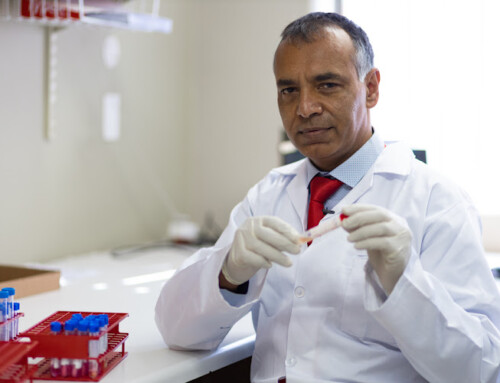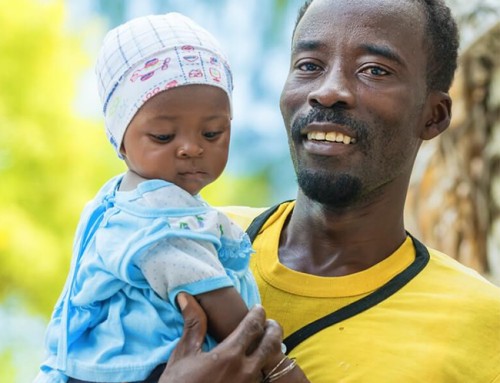
- SA sold 1.5 million doses of the AstraZeneca vaccine earlier this year
- The WHO also recommended that countries continue using the vaccine, even where new variants were circulating.
- According to Prof Shabir Madhi, it could have prevented up to 22 000 Covid deaths, mainly in older patients.
In February this year, South Africa sold its 1.5 million doses of the AstraZeneca-Oxford Covid vaccine after local evidence indicated that it was only minimally protective against mild to moderate disease caused by the Beta variant that was dominating the country’s second wave of infections.
The decision was criticised by local scientists. Not only did the study use only a small sample of some 2 000 participants, but the vaccine could still have offered protection against severe disease, hospitalisation and death – which is the main purpose of the Covid vaccines.
The doses were sold to 20 African countries via the African Union (AU). Former minister of health Zweli Mkhize said that these countries would benefit more from the vaccine since the Beta variant wasn’t circulating there, News24 reported.
But this decision was “quite intriguing”, said Professor Shabir Madhi, Dean of the Faculty of Health Sciences and Professor of Vaccinology at the University of the Witwatersrand. Madhi led the South African arm of the Covid AstraZeneca vaccine trial.
He was speaking at a virtual webinar hosted by the University of Cape Town on 16 September.
‘Highly questionable’
“[South Africa] decided to sell it off to the African Union, and the African Union then distributed the same vaccine to other African countries where the Beta variant was also circulating,” he said.
Madhi added: “Clearly, the morality of the South African government to sell off a vaccine to other African countries where the Beta variant was also circulating – but wasn’t identified because they don’t have the capacity to do sequencing – is highly questionable,” he said.
In March 2021, six of SA’s leading medical scientists, including Madhi, wrote an editorial that was published in the South African Medical Journal.
“Sending the AstraZeneca vaccine to other African countries raises deep ethical concerns. The [Beta] variant has been detected throughout Africa and may be responsible for the devastating second wave many countries have just experienced. If the South African authorities truly believed that the AstraZeneca vaccine did not work, why was it sold to the African Union?” they wrote.
It was a decision that was also not supported by the World Health Organization (WHO), who made a firm recommendation that the two-dose vaccine should still be used in countries where new variants were circulating.
Why the WHO made this recommendation
According to Madhi, there were animal model data suggesting that the vaccine protected against Beta-variant severe Covid infection.
In addition to that, data from Canada emerged showing that the AstraZeneca vaccine, even after a single dose, provided 80% protection against hospitalisation and death due to the Beta and Gamma (first identified in Brazil) variants, said Madhi. These two variants share similar characteristics in the context of mutations and susceptibility to antibody activity induced by the vaccine.
“So we basically sold off a vaccine, which WHO recommended South Africa uses, and ended up with a scenario where the vaccine actually does do what the WHO said it would do, [which is] to protect against hospitalisation and death.
“And at the same time, we ended up with the Delta variant rising, which the vaccine works equally well against, even after a single dose, where you’ve got 80% protection against hospitalisation and death,” said Madhi.
Diminished public trust
“There are consequences to this,” said Madhi about the sale, in that it created confusion among the public and lowered their trust in the vaccine. If South Africa were to reintroduce the vaccine, they may have trouble in getting people to actually take the jab.
After the doses were sold to the AU, some of the African countries’ populations did not want to use it, leading the doses to expire. The decision, therefore, had both direct and indirect consequences.
The AstraZeneca vaccine has been administered in more than 180 countries, including the UK.
Thousands of lives could have been saved
According to an analysis done by Madhi, had the 1.5 million doses of the vaccines been used when they arrived in South Africa, thousands of lives may have been saved.
“We would basically have prevented 18 000 – 22 000 people above the age of 60 dying due to Covid. Those are people that would actually have been vaccinated and those deaths would’ve been prevented, had they been vaccinated,” he said.
In January 2021, Madhi wrote that the missteps in South Africa’s vaccination strategy would probably cause the country to experience another one to two resurgences of cases before a substantial proportion of the population was immunised.
What followed was a deadly third wave of cases descending on South Africa, and experts have already warned that the country may face a fourth wave at the end of the year.
According to Madhi, this is a sobering fact. “We need to understand the consequences of our actions and poor decision-making in the country, especially when we go against the advice which WHO experts provided,” he said.
Source : https://www.news24.com/health24/medical/infectious-diseases/coronavirus/if-sa-had-rolled-out-astrazeneca-vaccine-up-to-22-000-deaths-could-have-been-prevented-prof-madhi-20210917


